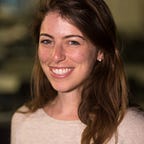In the Land of Elections
My experience participating in #Electionland.
This year, everyone around me became US political experts, talking about probabilities, policies, candidates, etc… It was very entertaining and extremely engaging, sort of a trend. Though I had an idea of how the system works and who the main candidates running for presidency were, I mainly listened to others share their opinions, I wanted to know more before jumping in.
Through school and within my group of friends, I became more involved and without asking me, Donald Trump got me personally involved in the matter with his offenses and threats against Mexicans and foreigners.
Simultaneously, as a graduate student new to journalism I experienced the codependent relationship between media and politics. These two worlds started merging in my personal reality: who I am with what I do. I had a clearer idea of what I stand for, acknowledging myself as an outsider living temporarily in the US.
In my experience here and in the circles I am part of, I noticed the embrace of self-criticism among Americans. This trait allowed me to be part of the conversation, I felt welcomed by those around me who were interested in my point of view, as a foreigner and as a Mexican.
As elections approached I lamented not being able to vote and I felt frustrated by the inability to do anything for my hosting country; and then Electionland came up. Though I didn’t have a clear idea of the project at first, I rejoiced at the opportunity to have a small part in the electoral process, the least I could do. Reading ProPublica’s announcement of the project, explaining it to my relatives and talking about it in class made it more coherent.
I experienced the power placed in our hands by the initiators of the project during the trainings, where all the pieces fell into place. In a newsroom filled with experts and professional journalists, we felt equally responsible in the struggle for justice and equality. We had access to the most powerful tools to dive into the monstrous world of social media; I wondered if that’s what it feels like to be God.
Being part of Electionland helped us advance our efforts as social journalists, creating a space for the voices of many to rise and report any attempt to silence them. As a member of the latino community, I tried to find ways to integrate the audience, communicate and be empathetic in order to better know how to make them part of the process.
Social media made the undertaking of tracking and monitoring possible. The system we used — the keywords, hashtag, maps, etc… — was very efficient and helped us come across important issues.
However, there is still a lot of people off social media who might have encountered problems but had no way to share them; this job is left for reporters on the ground, but it’s impossible to be present at every poll. We need to ensure the gap between citizens offline and journalists gets shorter as technology advances and find even more efficient ways to ensure voting equality. Electionland set a precedent for this challenge in future elections and I hope other democracies adopt the initiative which would greatly benefit from the safeguarding of the democratic process.
There is much to talk about after the outcome of elections, which I’ll save for another time. But a lesson learned after last week’s events is that we cannot see our role as journalists covering one specific community. We have to apply what we learn in class about empathy and trust building to all communities, we need to listen more and talk less.
